Filter
Target group
Music Therapy
People with a mental disability or a form of dementia can experience problems in their daily lives that are related to their disability(s). Music can help with this and is a means to communicate with others, music can encourage movement, and music influences people's moods. Neurological research also shows that music is good for you. That is why music therapy is a suitable treatment for people with a handicap.
More details
Music Therapy
What is music therapy?
Music therapy is a therapeutic treatment method in which music is used to achieve an improvement on a social and emotional level. In addition, it is also a means of communication, and it aims to improve memory and the ability to concentrate.
For whom is music therapy useful?
"Music therapy is a therapy for many different target groups, but many people with mental disabilities and dementia also benefit from it.
Music therapy is suitable for people with concentration problems, depression, tension problems, behavioural problems, grief, negative self-image, trauma, anxiety, communication problems, autism, and dementia. You do not have to have any musical skills for music therapy. Having fun in music is the starting point. Music therapy can be provided both on an individual basis and in groups, depending on the request for help.
The effects
Research shows that music therapy has a positive effect. It ensures that the emotional well-being of people with a mental disability or a from of dementia improves and feeling of depression, agitation, and anxiety decrease. f dementia improves and feelings of depression, agitation, and anxiety decrease. Music therapy does not cure the disability, but it does increase the well-being and the pleasure of life.
Music can evoke certain emotions and thus positively influence the state of mind of a client. For example, people with a mental disability or a form of dementia can often sing along with a melody, while they forget all kinds of other things. Music supports the memory in this way.
Are there different forms of music therapy?
"There are two forms: receptive (listening) therapy and active (singing/playing) therapy. Which form is used depends very much on the disability and the possibilities of the client? Nevertheless, music therapy can be used at any stage. Even people in the final stages of dementia still react to music. The body often continues to respond, even if the client himself hardly expresses himself anymore. For people with a disability and people in a less advanced stage of dementia, actively making music is very important, because they also move in the process.
Making music: non-verbal contact
What someone may not be able to express, they can often make clear through music. Music makes it possible to make non-verbal contact, both with the therapist and with the family or carer. This is a special experience for people who are verbally handicapped or can no longer communicate. When language skills are minimal, non-verbal contact is very important. Think of voice use, intonation, and tempo. A music therapist makes specific use of these musical elements of language. In addition, it has been shown that when making music, the movement stimulates the brain and therefore keeps it healthier. It therefore has a twofold effect.
Listening to music: less introverted
Besides making music, 'normal' music listening is also good for people with a mental disability or a form of dementia. Of course, it is important to match the choice of music to what the person likes to listen to. It will often be counterproductive to have someone who likes top 40 music listen to classical music or old folk songs.
When listening to music for people with dementia, the effects are striking. Research has shown that the part of the brain where music is stored remains undamaged the longest in people with dementia.
It has also been researched that "regularly listening to music can cause people who have completely turned in on themselves to 'wake up' again. Sometimes for a short moment, sometimes for longer. Music stimulates many areas of the brain, including the hippocampus - the part of the brain that regulates long-term memory.
In addition, making, listening to, or singing music often triggers all kinds of (childhood) memories. This also makes it easier to engage in short conversations or other activities.
Especially family members and carers of people with a mental disability or dementia notice that their loved one is calmer and more relaxed.
Nenko offers various musical, play and movement activities. Click here and view our complete range in our webshop.
Music therapy is a therapeutic treatment method in which music is used to achieve an improvement on a social and emotional level. In addition, it is also a means of communication, and it aims to improve memory and the ability to concentrate.
For whom is music therapy useful?
"Music therapy is a therapy for many different target groups, but many people with mental disabilities and dementia also benefit from it.
Music therapy is suitable for people with concentration problems, depression, tension problems, behavioural problems, grief, negative self-image, trauma, anxiety, communication problems, autism, and dementia. You do not have to have any musical skills for music therapy. Having fun in music is the starting point. Music therapy can be provided both on an individual basis and in groups, depending on the request for help.
The effects
Research shows that music therapy has a positive effect. It ensures that the emotional well-being of people with a mental disability or a from of dementia improves and feeling of depression, agitation, and anxiety decrease. f dementia improves and feelings of depression, agitation, and anxiety decrease. Music therapy does not cure the disability, but it does increase the well-being and the pleasure of life.
Music can evoke certain emotions and thus positively influence the state of mind of a client. For example, people with a mental disability or a form of dementia can often sing along with a melody, while they forget all kinds of other things. Music supports the memory in this way.
Are there different forms of music therapy?
"There are two forms: receptive (listening) therapy and active (singing/playing) therapy. Which form is used depends very much on the disability and the possibilities of the client? Nevertheless, music therapy can be used at any stage. Even people in the final stages of dementia still react to music. The body often continues to respond, even if the client himself hardly expresses himself anymore. For people with a disability and people in a less advanced stage of dementia, actively making music is very important, because they also move in the process.
Making music: non-verbal contact
What someone may not be able to express, they can often make clear through music. Music makes it possible to make non-verbal contact, both with the therapist and with the family or carer. This is a special experience for people who are verbally handicapped or can no longer communicate. When language skills are minimal, non-verbal contact is very important. Think of voice use, intonation, and tempo. A music therapist makes specific use of these musical elements of language. In addition, it has been shown that when making music, the movement stimulates the brain and therefore keeps it healthier. It therefore has a twofold effect.
Listening to music: less introverted
Besides making music, 'normal' music listening is also good for people with a mental disability or a form of dementia. Of course, it is important to match the choice of music to what the person likes to listen to. It will often be counterproductive to have someone who likes top 40 music listen to classical music or old folk songs.
When listening to music for people with dementia, the effects are striking. Research has shown that the part of the brain where music is stored remains undamaged the longest in people with dementia.
It has also been researched that "regularly listening to music can cause people who have completely turned in on themselves to 'wake up' again. Sometimes for a short moment, sometimes for longer. Music stimulates many areas of the brain, including the hippocampus - the part of the brain that regulates long-term memory.
In addition, making, listening to, or singing music often triggers all kinds of (childhood) memories. This also makes it easier to engage in short conversations or other activities.
Especially family members and carers of people with a mental disability or dementia notice that their loved one is calmer and more relaxed.
Nenko offers various musical, play and movement activities. Click here and view our complete range in our webshop.
View catalogue
Take a look at our product range!
PDF-Catalogue
Click here!

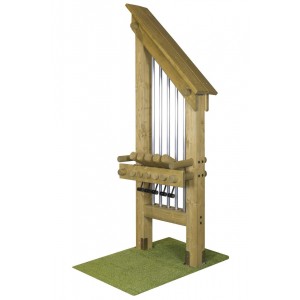
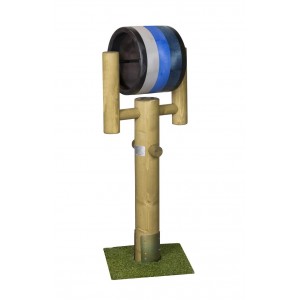
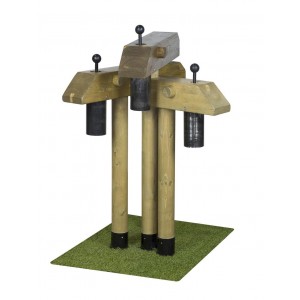

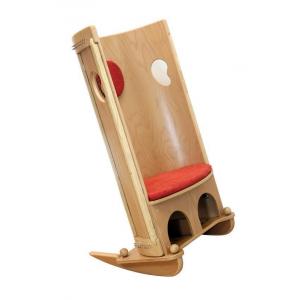
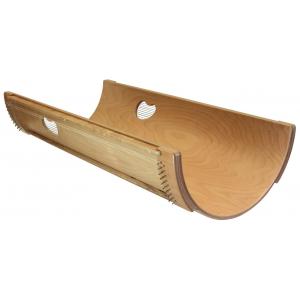

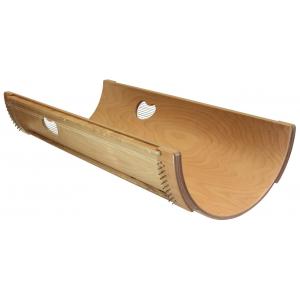
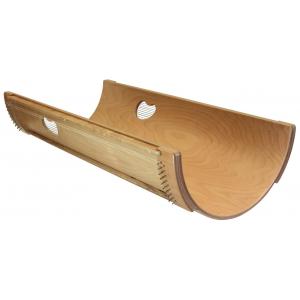
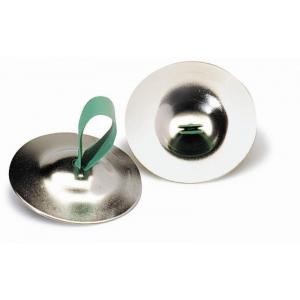

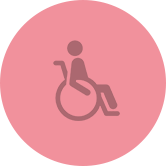






 Back
Back